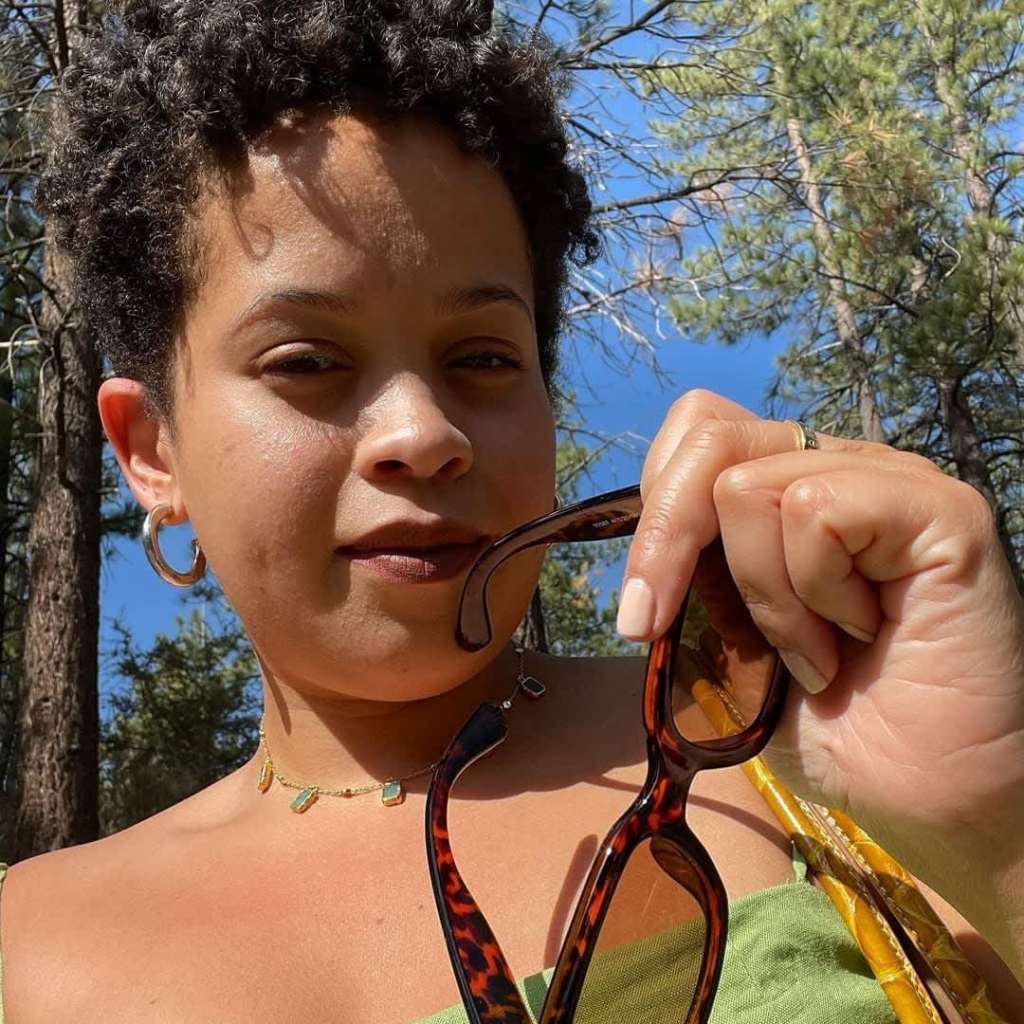“I want it really short,” I told my hairstylist Derrick Keith four weeks ago, while sitting in the salon chair at Hairstory Studio. After a 15-month hiatus in Los Angeles, I was back in New York City and experiencing culture shock with the heat and humidity. In an effort to cool off, I decided to chop off six inches of my 3C curly hair. Keith hooked me up with an undercut to keep any hair off my neck, and then gave me curl definition by twisting my hair and implementing a rod. Just like that, I went from shoulder-length hair to a chic, short pixie cut – and I loved it.
I didn’t cry when the inches came off. Or feel like a new person. Yet for some reason, the days and weeks following, people came up to me expressing how “brave” I was for making the big chop. It first started with a good friend. “I could never cut my hair like that . . . you’re so brave,” she said. My neighbor followed up with, “My boyfriend would never allow that.” Then the random security guard at the bank said, “I commend you on your courage.” Oh, and who could forget my landlord who begged me to go back to long hair?
It really bothered me that people felt so free to give me their feedback, whether I asked them or not. It was almost like they thought they had to pick a side – femininity or rebellion – and felt compelled to share. And sure, I recognize the comment as an intended compliment, but because it didn’t feel brave, it was hard to accept. Brave is serving in a war, risking your health caring for the sick, or protesting when you know your life could be taken. How were people putting my haircut, done merely for function, in the same category?
Plus, the tone in which these comments were said threw me off. It’s the way their voice indicated that a big chop – and short hair on women in general – is going against the norm. As in, a women who cuts her hair would have to be brave enough to do it because of the reprimands or judgement associated with it.
Why is a haircut that’s done purely as a styling choice such a controversial topic? Societal conditioning. From a very early age we are taught to identify long hair with femininity. You see young girls obsessing over Disney princesses, who never had short hair. Ariel is seen obsessively combing her long ends to preserve the beauty. Mulan cuts her hair short to disguise herself as a man. And worst of all, Rapunzel loses her powers when her magical, extra-long hair is cut.
These classic films and the media teach girls – and people in general – that long hair is valuable, worthy, and should be preserved. Short hair is met with opposition by a large majority who’ve been conditioned to think that a woman’s hair is her glory.
When you realize images seen in the media depict small snapshots of normalcy, beauty, and acceptability – you understand how important accurate and authentic representation matters.
Unfortunately, whether we like it or not, the way we look impacts how people perceive us. I’ve decided that the way I will help normalize the inaccurate stereotype (that a big chop is brave) is to keep cutting it. Remember, everyone has an opinion and their own biases, but the only one that actually matters is yours.

